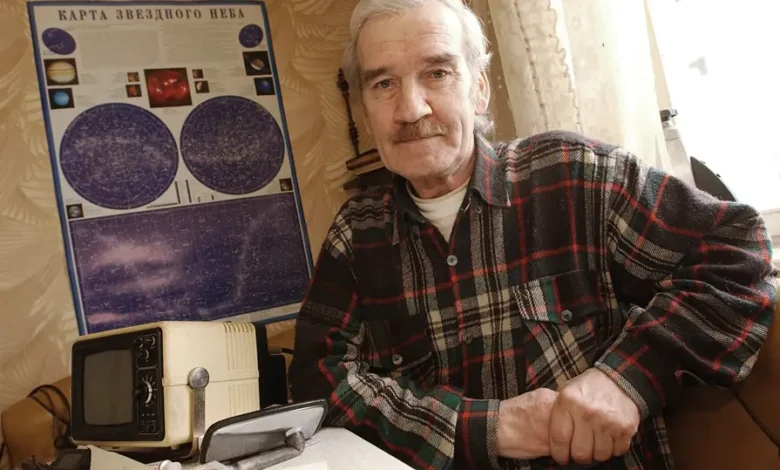
Stanislav Petrov: The Man Who Saved the World from Nuclear Disaster in 1983
In the annals of history, few moments stand as pivotal as September 26, 1983, when Stanislav Petrov, a Soviet lieutenant colonel, made a decision that would alter the course of humanity. During a time of heightened tensions between the United States and the Soviet Union, Petrov’s actions prevented what could have been a catastrophic nuclear war. This article delves into the details of that fateful night, exploring the context, the incident itself, and Petrov’s legacy.
The Cold War Context
The early 1980s were marked by escalating tensions between the superpowers. Under President Ronald Reagan, the United States adopted a more aggressive stance against the Soviet Union, which was viewed with deep suspicion by Soviet leadership. The geopolitical climate was fraught with fear and paranoia, particularly after events like the downing of Korean Air Lines Flight 007 by Soviet forces just weeks prior to the incident involving Petrov. The Soviet Union had invested heavily in early-warning systems like Oko, designed to detect incoming missile attacks. This system was crucial for maintaining a doctrine of mutually assured destruction, which dictated that any nuclear strike would be met with an overwhelming counterstrike.
The Incident: A False Alarm
On that fateful night, Petrov was on duty at the Serpukhov-15 bunker when the Oko system issued an alarming warning: it detected an incoming missile strike from the United States. Initially, it indicated one missile launch, but soon escalated to five. According to standard protocol, Petrov was required to report this information to his superiors immediately. A confirmation would likely lead to a retaliatory strike against the U.S., triggering a full-scale nuclear war. However, Petrov faced a critical decision. He suspected that this alert might be a false alarm due to two primary reasons:
- System Reliability: The Oko system was relatively new and untested.
- Attack Logic: It seemed illogical for the U.S. to launch only five missiles in a first strike when thousands would be expected.
In an act of profound judgment and courage, Petrov chose not to escalate the situation. Instead of reporting the incoming attack, he labeled it as a malfunction and awaited further confirmation—confirmation that never came.
Consequences of His Decision
Petrov’s intuition proved correct; the alarm had been triggered by an unusual atmospheric phenomenon where sunlight reflected off high-altitude clouds. Had he reported the attack as real, it is highly probable that Soviet leadership would have ordered a retaliatory strike, resulting in millions of deaths on both sides and potentially plunging the world into nuclear chaos. Experts estimate that a full-scale nuclear exchange could have resulted in catastrophic casualties—between 136 million and 288 million people could have died within days due to direct strikes and subsequent fallout. The long-term effects could have led to billions more suffering from starvation and environmental collapse due to nuclear winter conditions.
Aftermath and Recognition
Despite his monumental decision, Petrov faced repercussions for his actions. He received no accolades; instead, he was reprimanded for failing to follow proper protocol regarding paperwork. This lack of recognition stemmed from a desire within Soviet leadership to avoid admitting flaws in their military systems. Years later, as the Cold War thawed and more details about the incident became public knowledge, Petrov began receiving international recognition for his bravery. He was honored at various forums including the United Nations and received awards such as the Dresden Peace Prize.In interviews following his retirement, Petrov humbly downplayed his role: “I was just at the right place at the right time,” he stated. He passed away on May 19, 2017, leaving behind a legacy that serves as a powerful reminder of individual courage in times of crisis.
Legacy: A Cautionary Tale
Stanislav Petrov’s story is not just about one man’s decision; it reflects broader themes of human judgment under pressure and the potential consequences of technological failures in military systems. His actions underscore how critical thinking can prevail over rigid adherence to protocol—an essential lesson in both military strategy and crisis management. In today’s world, where tensions still simmer between nations armed with nuclear capabilities, Petrov’s legacy serves as a cautionary tale about vigilance, responsibility, and humanity’s capacity for both destruction and salvation.
Conclusion
The tale of Stanislav Petrov is one that resonates deeply in our contemporary landscape. It reminds us that sometimes it takes one individual’s resolve to alter history profoundly. As we reflect on this pivotal moment from 1983, we must continue to advocate for peace and understanding among nations—ensuring that such close calls are relegated only to history books rather than reality.
For more historic stories, click here.
Connect with us on X/Twitter here.